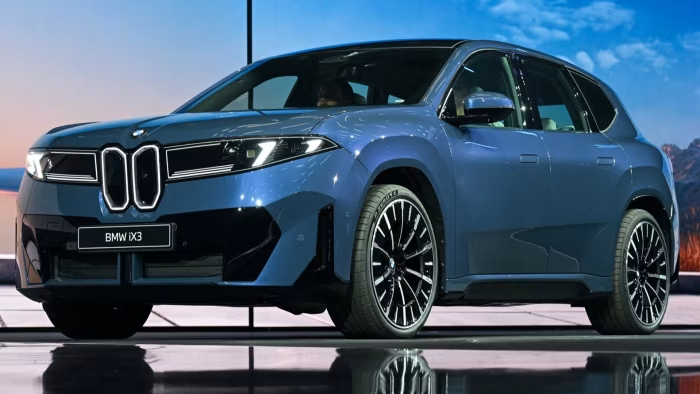Unlock the Editor’s Digest for free
Roula Khalaf, Editor of the FT, selects her favourite stories in this weekly newsletter.
BMW on Tuesday cut its full year profit guidance after sales in China came in “below expectations”, highlighting the struggle of premium European carmakers to hold their own against Chinese competitors.
The Munich-based company said it now expected its profit before tax for 2025 to be slightly below last year’s level of €10.97bn — having previously expected the figure to be flat.
Higher than anticipated tariff costs and financial support for its Chinese dealerships also influenced the revised guidance, BMW said.
The carmaker’s margin on earnings before interest and tax was set to come in between 5 and 6 per cent in 2025, at the lower end of its previous guidance.
European carmakers have struggled to retain market share in China, where consumers have rapidly shifted to buying electric vehicles and favoured Chinese manufacturers that price their models at a significant discount to foreign competitors.
BMW said it had reduced its expected sales over the rest of the year for China after a disappointing third quarter.
The number of BMWs and Minis — a brand also owned by the carmaker — sold in the Chinese market fell 0.4 per cent in the quarter compared to the same period last year. Unit sales were down 11.2 per cent during the first nine months of the year.
Globally, BMW’s unit sales rose by 8.8 per cent in the third quarter.
BMW’s German rival Mercedes-Benz also on Tuesday announced a sharp decline in unit sales in China in the third quarter. The number of cars sold fell 27 per cent.
BMW said it no longer expected to immediately secure a refund for US tariffs paid above a level agreed in a trade deal between Washington and Brussels, which set a basic levy of 15 per cent for exports from the EU to America.
Carmakers have been hoping to recoup the cost of higher US levies paid since August 1 once the EU implements tariff reductions on imports of American-made vehicles and automobile parts.
BMW said it now expected to receive a tariff rebate for that period from both US and German authorities totalling “a high three-digit million figure” in 2026.
